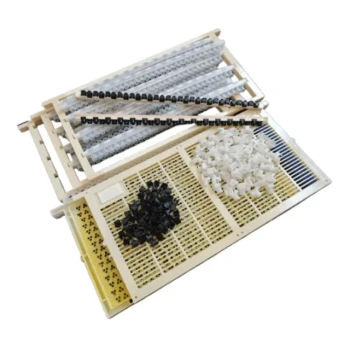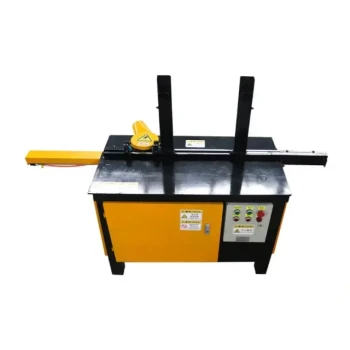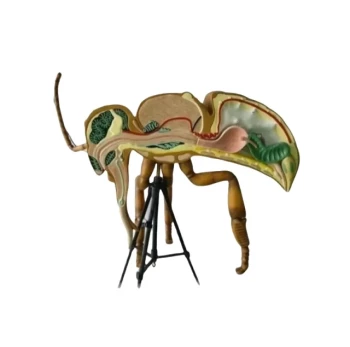In short, artificial insemination of queen bees was developed for one primary reason: to gain precise control over honey bee genetics. This technique allows beekeepers and scientists to bypass the randomness of natural mating, enabling them to select not only the queen (the mother) but also the specific drones (the fathers) that contribute to the colony's genetic makeup.
The core problem with natural mating is that it's a genetic lottery; a queen mates with numerous, unknown drones from the surrounding area. Artificial insemination transforms bee breeding from a game of chance into a deliberate, targeted program for improving specific traits.
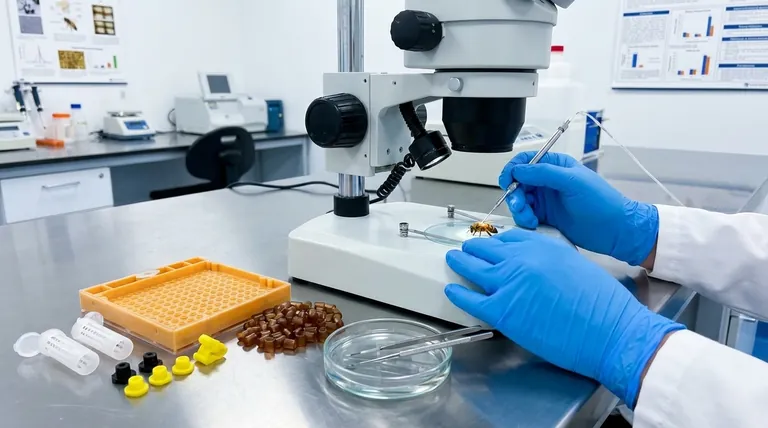
The Challenge of Natural Mating
To understand the value of artificial insemination, we must first understand the limitations of a queen's natural nuptial flight.
A Queen's Open Mating
A virgin queen bee leaves the hive on one or more "nuptial flights." She flies to a "drone congregation area," often high in the air, where thousands of drones from all the colonies in the vicinity have gathered.
She will mate with 10-20 different drones during these flights before returning to the hive to begin laying eggs for the rest of her life.
The Genetic Lottery
The critical issue is that a beekeeper has no control over which drones the queen mates with. The drones can come from their own hives, a neighbor's hives, or even feral colonies up to several miles away.
This means the paternal genetics of the new colony are completely random and unknown.
The Risk of Undesirable Traits
This lack of control can undermine a beekeeper's efforts. A carefully raised queen from a gentle, productive line can mate with drones from an aggressive or disease-prone colony, passing those negative traits to her offspring.
How Artificial Insemination Provides a Solution
Artificial insemination (AI), also known as instrumental insemination, directly solves the problem of random genetics by giving the breeder complete control over the mating process.
Precision Genetic Selection
With AI, breeders can select drones from specific colonies that exhibit highly desirable traits. For example, they can breed for Varroa Sensitive Hygiene (VSH), a behavior where bees detect and remove pupae infested with Varroa mites, a devastating parasite.
This allows for the intentional stacking of positive traits from both the maternal (queen) and paternal (drone) lines, accelerating genetic improvement far beyond what natural selection can achieve.
The Controlled Insemination Process
The technique is highly clinical. A virgin queen is carefully anesthetized with carbon dioxide (CO2), which also helps stimulate the later onset of egg-laying.
Using a specialized apparatus under a microscope, a technician injects a precise amount of semen—typically 8 microliters, the equivalent of semen from 10-12 drones—directly into the queen's median oviduct. The queen then stores this sperm in her spermatheca to fertilize eggs for her entire reproductive life.
Eliminating Geographic Barriers
Artificial insemination breaks the boundaries of geography. Semen from a superior drone line in one part of the world can be shipped and used to inseminate a queen anywhere else. This creates a global pool of elite genetics accessible to breeders.
Understanding the Trade-offs
While powerful, artificial insemination is not a universal solution and comes with significant trade-offs.
High Cost and Technical Skill
The process requires expensive microscopic equipment, specialized tools, and a highly trained technician. This makes it impractical and cost-prohibitive for the vast majority of beekeepers.
Risk of Reduced Genetic Diversity
If breeders focus too heavily on only a few "perfect" drone lines, it can inadvertently reduce the overall genetic diversity of the honey bee population. This can make bees more vulnerable to new diseases or environmental stressors in the long term. Careful management of breeding lines is essential to avoid this pitfall.
Making the Right Choice for Your Goal
Artificial insemination is a specialized tool for a specific purpose. Understanding its role helps beekeepers make better decisions.
- If your primary focus is research or a large-scale queen breeding operation: Artificial insemination is the essential tool for making rapid, targeted genetic progress and developing bees resistant to pests and diseases.
- If your primary focus is backyard or small-scale beekeeping: Relying on naturally-mated queens from reputable breeders who manage their stock for desirable traits is the most practical and effective strategy.
Ultimately, artificial insemination is a powerful instrument that gives humans the ability to guide honey bee evolution, securing the health and productivity of these vital pollinators.
Summary Table:
| Aspect | Natural Mating | Artificial Insemination |
|---|---|---|
| Genetic Control | Random, unknown drones | Precise selection of mother & father lines |
| Primary Goal | General colony reproduction | Targeted genetic improvement |
| Key Advantage | Simple, natural process | Enables breeding for traits like Varroa resistance |
| Best For | Backyard & small-scale beekeeping | Large-scale breeding & research programs |
Ready to Elevate Your Beekeeping Operation?
As a commercial apiary or equipment distributor, you understand the critical role genetics play in colony health and honey production. HONESTBEE supplies the professional-grade equipment and supplies needed to support modern, data-driven beekeeping.
Let us help you build a more resilient and productive operation. Contact our expert team today to discuss your specific needs and explore our wholesale-focused product lines.
Visual Guide
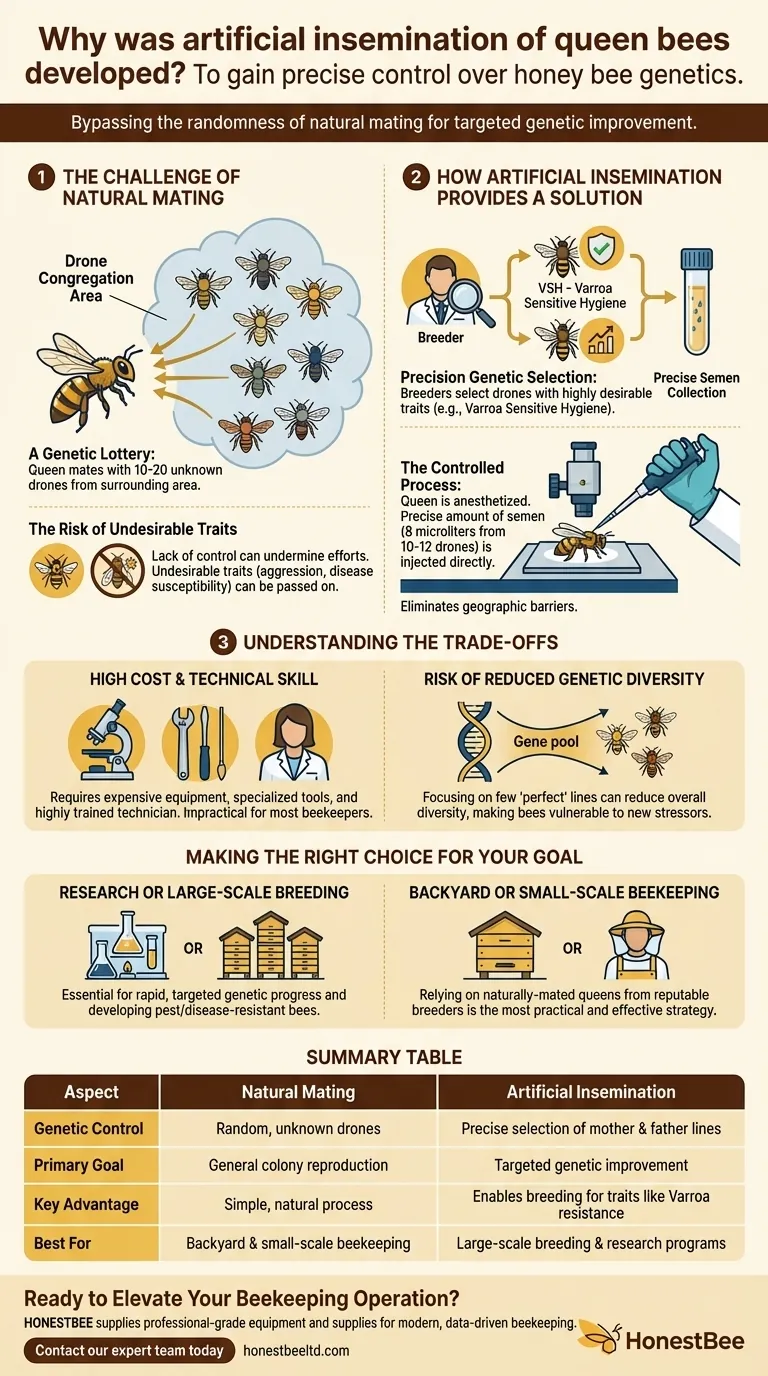
Related Products
- Nicot Queen Rearing Kit for Beekeeping and Grafting in Nicot System
- Jenter Queen Rearing Kit Complete Set for Bee Breeding
- No Grafting Queen Rearing Kit: System for Royal Jelly Production and Queen Rearing
- Wooden Queen Bee Excluder for Beekeeping
- Metal Queen Bee Excluder for Beekeeping
People Also Ask
- Why are professional micro-insemination equipment and consumables critical in Apis cerana breeding research?
- What are the primary technical advantages of using professional artificial insemination equipment in honey bee breeding?
- What technical support does a stereo microscope provide for queen bee insemination? Enhance Your Success with Precision
- What are the primary advantages of utilizing Instrumental Insemination technology in the breeding of purebred Carpathian bees?
- What technical advantages do high-precision artificial insemination instruments provide in honeybee breeding research?
- Why are specialized air pumps and flow meters used for queen bee insemination? Ensure Surgical Safety and Success
- Why is a CO2 anesthesia system necessary for queen bee insemination? Ensure Surgical Safety and Faster Egg-Laying
- What is the role of precision AI equipment in honey bee genetic diversity? Master Controlled Colony Resilience


